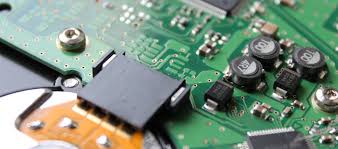Introduction
Distribution equipment plays an important role in the safe distribution of electrical power. The equipment needs to be operated in a safe manner securing continuity of supply to consumers.
This requires the equipment to be:
- Well designed, installed, commissioned
- Operated and maintained in a satisfactory manner
- Within a management system
- Effective in meeting the reliability goals and
- Aware of the need of maintenance balanced against equipment downtime and cost
The course focuses mainly on the operation and maintenance of distribution equipment, with reference to auxiliary equipment necessary for its operation.
Objectives
Delegates will gain a detailed appreciation of the following:
- The need and management for maintenance
- Management and implementation of safe systems of work
- Co-ordination of maintenance activities and maintaining system safety
- Switchgear maintenance - transformer maintenance
- Cable installation and rating; condition monitoring using non intrusive technology
- Routine inspections, properties of insulating oils
Training Methodology
The goals of each participant are discussed to ensure their needs are fulfilled, as far as possible. Questions are encouraged throughout, particularly at the daily wrap up sessions. This provides opportunities for participants to discuss specific issues and, if possible, find appropriate solutions. Case studies are employed to highlight particular points and appropriate video material used to illustrate particular conditions.
Organizational Impact
The course will allow delegates to interact and gain shared experiences of others along with:
- An understanding for the need for routine inspection
- Using selected videos and case studies to illustrate the material being discussed
- An emphasis to ensure material is appropriate to the organisations being represented
- An awareness and understanding of the course objectives
- Safe working practices being stressed and
- Risk reduction methods investigated
Personal Impact
On successful completion of this course, delegates will be able to understand:
- The need for routine inspection, adequate maintenance of equipment and accurate record keeping
- Methods of maintenance management, using safe systems of work
- How to co-ordinate maintenance activities for best utilisation of time and resources, while ensuring safety is not compromised
- Switchgear maintenance requirements and techniques - properties of insulating oils and their analysis
- Transformer maintenance requirements and techniques - cable installation and fault finding techniques
- The use of non intrusive condition monitoring methods
Who Should Attend?
- Electrical Professionals
- Electrical Engineers
- Technicians
- Professionals responsible for the operation and maintenance of distribution equipment, who will benefit from sharing experiences in the planning, organisation, and implementation of maintenance activities
SEMINAR OUTLINE
DAY 1
Introductions and Safety
- Goals and discussion
- The smart grid
- Maintenance of electrical equipment
- Managing maintenance
- Safety culture
- Safety integrity level (SIL)
- Electrical safety rules
- Electrical hazards and emergencies
DAY 2
Power Network Fundamentals
- Power network fundamentals
- Faults and protection
- Fault levels
- Types of protection relay
- Numerical relays
- Arc flash mitigation
- Importance of earthing
- Network earthing
DAY 3
Transformers
- Transformer characteristics
- Transformer cooling
- Transformer protection
- On load tap changer operation
- Transformer site testing
- Transformer maintenance
- Dry transformer
- Gas insulated transformer (GIT)
DAY 4
Switchgear and Condition Monitoring
- Circuit breaker history
- Circuit breaker ratings and operation
- Circuit breaker examples
- Switchgear maintenance
- Properties and deterioration of insulating oils
- Partial discharge
- Thermal imaging
- Corona detection
DAY 5
Medium Voltage and High Voltage Cables Faults and Locating Methods
- MV and HV cable ratings and installation methods
- Common MV and HV cable faults
- Cable fault locating
- MV and HV overhead lines faults
- LV wiring and cabling systems
- Introduction to the wiring regulation
- Wrap up session

